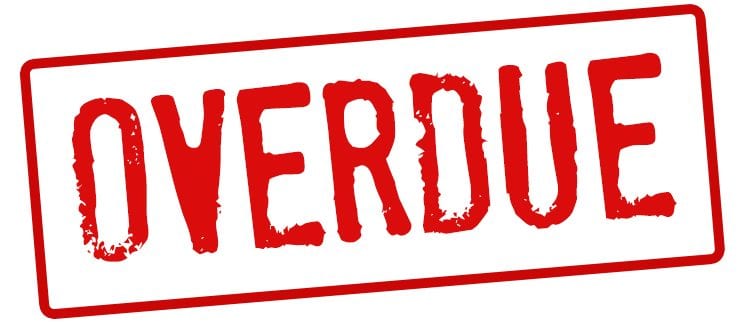What You Need to Know About the IRS Private Debt Collection Program Slated to Start in 2017

The IRS announced that they now plan to start private collection for specific tax debts that are past due. This program will start in Spring of 2017. We understand that you may have questions and concerns regarding this new change and we hope to answer as many of these questions as possible in the following article.
The change was part of a federal law enforced in December of 2015. It entitles four specifically designated contractors to collect outstanding tax debts on behalf of the government and the IRS. In order to qualify as one of these four private agencies, they must ensure that they will respect the rights of the taxpayers. This means that they must abide by the conditions that protect taxpayers under the Fair Debt Collection Practices Act, amongst other requirements.
This is not the first time the IRS has used private contractors. In the past 18 years, they have done so twice with little success. However, both the IRS and the government have made changes to the program and are confident that going forward, this program will be a success.
The four contractors that have been selected and approved by the IRS are as follows:
- Conserve: Fairport, NY
- CBE Group: Cedar Falls, IA
- Pioneer: Horseheads, NY
- Performant: Livermore, CA
The following are the terms and conditions of the new program:
The designated private collections agencies will work only on those accounts in which the taxpayers owe past debt. This means that the IRS will no longer handle these accounts. The IRS will assign said accounts to the aforementioned agencies according to conditions such as those accounts that are overdue or in the cases that the IRS lacks the resources to properly handle that particular account.
The Internal Revenue Service must inform taxpayers and their respective representatives via written notice that their account will be transferred to one of the previously mentioned private collections agencies. The assigned agency will then issue their own separate letter to both parties thus confirming the change.
These private collection agencies must identify themselves as contractors employed by the IRS to collect past due taxes. Everyone employed by these agencies must respect the rights of the taxpayer, remain courteous and professional at all times and strictly adhere to the provisions set forth in the Fair Debt Collections Practices Act.
The IRS ensures that they will do everything in their power to avoid confusion and assist the taxpayers in understanding their rights and responsibilities. This is necessary due to the recent phone scams in which con artists have contacted taxpayers claiming to be from the IRS and demanding immediate credit card payments from taxpayers. The IRS wants to protect taxpayers from these scams and will work to prevent this as much as possible. The IRS says it will continue to update taxpayers about such scams as well as give them advice on how to protect themselves in these scenarios.
In keeping with this, the private collection agencies will not demand payment via a prepaid debit card. Rather, taxpayers will be informed about their options such as check payments made payable to the US Treasury which will then be directly forward to the IRS as opposed to the collection agency.
The private collection agencies may not file levies or liens against taxpayers and do not have the power of collection enforcement.
The following tax bills will NOT be sent to private collections:
- Those involving the case of an innocent spouse.
- Those with a pending or active OIC (offer-in-compromise) or an installment agreement.
- Those cases in which the taxpayer in question is:
- Deceased
- Under the age of 18
- A victim of identity theft
- Actively serving in a Designated Combat Zone
- Currently involved in an audit by the Internal Revenue Service
- Involved in Legislation
- Under criminal investigation
- Currently involved in a levy
- Has an open IRS Appeal
Your Rights as a Taxpayer
Anyone contacted by one of these private agencies has the right to file suit against any agency which fails to act in accordance with the FDCP. You may also register a complaint against an agency for refusing to comply with the Treasury Inspector General for Tax Administration.
Under the Fair Debt Collection Practices Act you are guaranteed the following:
- That you will not be contacted outside the hours of 8 am to 9pm in your respective time zone. If these hours are not convenient for you such as the event that you work overnight, the agency may not contact you during those hours upon your request.
- The agency must stop communication with you upon your written request to do so.
- The agency may not continuously contact a person via telephone with the intent to abuse, harass or annoy the taxpayer.
- They agency may not communicatewith the taxpayer in their place of employment in the event that the taxpayer has informed them that this is prohibited by the employer.
- The agency may not contact taxpayers who have stated that their case is being handled by a tax representative.
If you want wish to file a complaint against a private collection agency you need to contact the Treasury Inspector General for Tax Administration (TIGTA) via their hotline (800-366-4484), or at TITGA.gov. This also involves those taxpayers who feel they have been threatened, assaulted or harassed by an employee from one of these private agencies. You may also send a written complaint to the following address:
Treasury Inspector General for Tax Administration Houston
P.O. Box 589
Ben Franklin Station
Washington, DC, 20022-0589
Get our Free Special Report: 7 Secrets the IRS Doesn’t Want You to Know!
Not only are we licensed Tax Relief Specialists, we are also former Senior IRS Agents that now serve the best interests of taxpayers like you – all we do is handle IRS Tax Relief matters, all day, every day. Speak to us for FREE at 1 (949) 260-4770.
At Landmark Tax Group, we will be using all available options to ensure our clients’ cases are handled appropriately by the IRS and the new private debt collectors alike.
If you have any questions regarding these changes, contact us now to speak with our tax relief specialists and former IRS Agents. Call us today at 1 (949) 260-4770.




